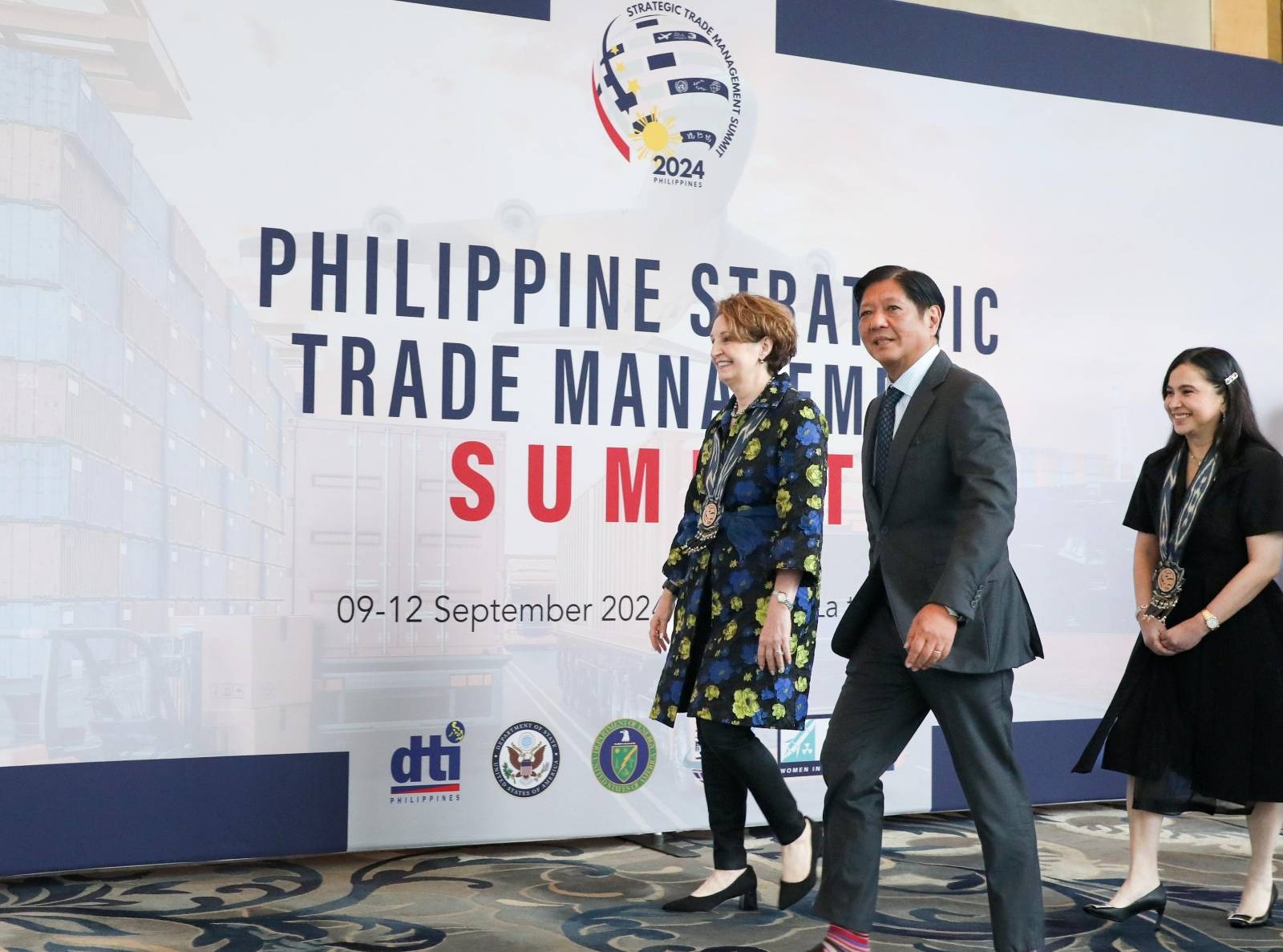
By Brian Campued
President Ferdinand R. Marcos Jr. reiterated on Monday the Philippine government’s commitment to regulating the trade of dual-use technology to ensure that “the tools of our progress do not become weapons of our destruction.”
During the 2024 Philippine Strategic Trade Management Summit in Taguig City, Marcos noted the emergence of technologies in both civilian and military fields that pose challenges to trade management globally.
“The rapid pace of advancement demands us to be more agile, more responsible, and it requires us to address both the speed and dual-use nature of these new technologies,” he said.
According to the President, the inaugural summit also calls on nations to work together about mitigating the risks of these new technologies as well as promoting stability and confidence in their respective regulatory bodies.
For Marcos, strategic trade management (STM) “is more than just a bureaucratic exercise” but also about “upholding the rule of law, protecting our people, and contributing to global peace and security.”
The Chief Executive also underscored the importance of a robust and resilient regulation system to prevent the misuse of dual-use technologies amid the rapid pace of technological advancement.
“By leveraging our collective strengths, we can advance regional initiatives that ensure supply chain security, counter the proliferation of weapons of mass destruction and insurgency, and create an environment where trade can thrive,” Marcos said.
“This will be key to harnessing our collective economic prowess and sustaining our region as an epicenter of growth in this century,” he added.
Meanwhile, the President also said that the Philippines has launched its strategic investment plan focused on developing key industries to better position the country in the global market.
The government has also formulated policies that require individuals and entities engaging in activities covered by the Strategic Trade Management Act to register and receive authorization to deliver their services.
Furthermore, programs to educate border control and import/export officers as well as other stakeholders were likewise implemented in properly complying with the rules and regulations related to STM.
The government is also conducting post-authorization audits, compliance checks, and compliance consultations through monitoring and inspection activities, Marcos added.
“But the work does not end there—we will continue to upgrade industry standards, modernize regulations, and further establish linkages through various trade and investment frameworks such as the ASEAN, Asia Pacific Economic Cooperation, Regional Comprehensive Economic Partnership, the Indo-Pacific Economic Framework for Prosperity, all these so that we can see a more competitive region in the future,” the President said. – avds
